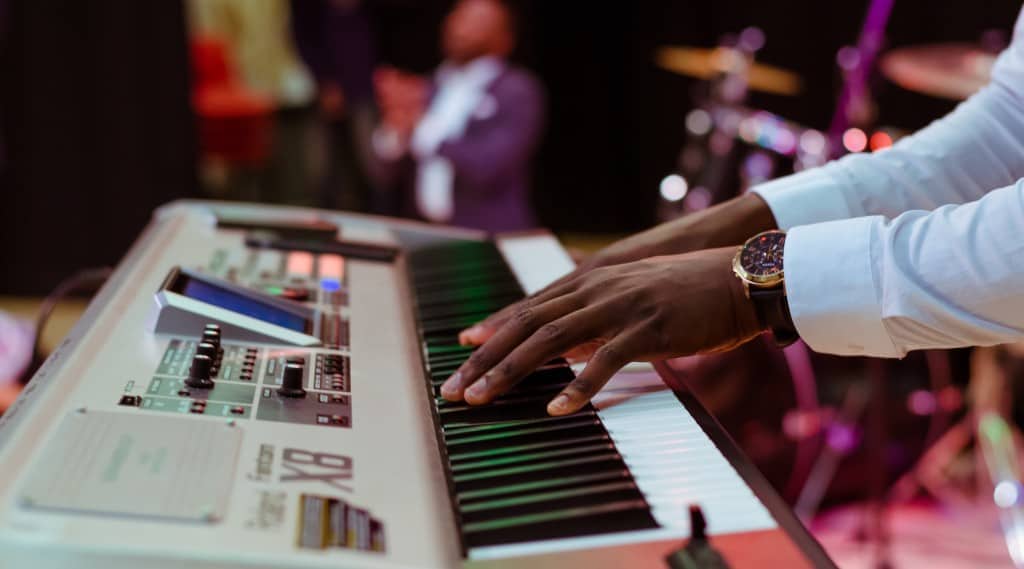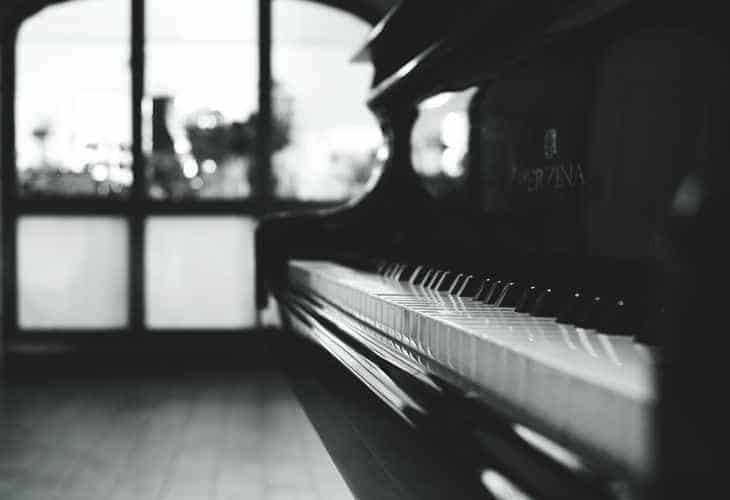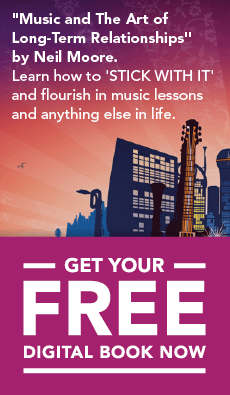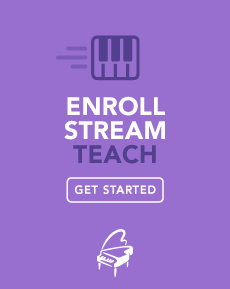
Who likes to perform in front of others? I don’t see many hands up. It seems like there’s a rare breed of person who just loves an audience, and the rest of us recoil in terror at the prospect. You’ve probably experienced the feeling – the trembling, the dry throat, the sweaty palms, the butterflies. Why do we put ourselves through it?
It’s worth facing that demon if you can, because sharing your music has many rewards. Apart from the delicious sense of relief when it’s over, playing for others is an acknowledgement that you’ve reached a place where you can present something to the world. You’re showing yourself and others that you’re a legitimate musician, however humble. Best of all, there’s the opportunity of sharing with people the music that inspires you, perhaps even by playing something that’s truly yours, like a composition or improvisation.
Performance anxiety is associated with fear of failure, embarrassment and uncertainty. One of the things it does is force your attention back on yourself rather than the music. This is probably the worst place for it to be, because for most of us it’s hard to reconcile our amateur selves with the image of a performer, master of the stage. Instead, we fill our heads with thoughts like, “I hope I don’t mess up”, “what if I get that tricky bit wrong?”, or “what will people think of me?”
Actually, when someone is listening to you playing, they are most likely more interested in the music than in you, or at the very least the music will serve to divert their attention from you. That’s not surprising when you think that music engages the emotions like no other experience, and it does so without our necessarily asking it to. Music speaks for itself. You’re there simply to let the music do its job.
The most common opportunity for Simply Music students to play for others is in their shared lessons. They are a safe way to begin experiencing performing, but we reach a milestone when a teacher holds a concert or recital for all their students and guests. Following is some advice I give early-level students about preparing for concerts.
The best way to maximise the likelihood of a successful experience is to be thoroughly prepared. The more work you do before the day, the more comfortable you’ll feel on the day. Of course, that boils down to just playing your song a lot, but there are other things you can do to prepare:
Choose your song well ahead of time, and start preparing as soon as you know the event is coming up.

Choose wisely. A student concert isn’t about showing off how well you can conquer Rachmaninov’s Third! You should make sure your song is well within your ability. It’s not as if you don’t have plenty of comfortable pieces to choose from – look at your amazing Playlist! It’s also a really good idea to have a backup – prepare a second piece as well.
Create a comfort zone. However well you can play at home, it’s possible that you won’t sound as good at the concert. After all, it’s a different environment with a different instrument, and the time you’re most anxious to do your best seems to be the time you’re most likely to make a mistake. I always say if you want your song to be 100% perfect at the concert, it needs to be 120% perfect at home. How well do you really know the song? Perhaps you could try to play at home in ways that deliberately make it trickier. Here are a few ideas:
- See if you can play your song with your eyes closed.
- Deliberately play too fast – if you can play it at high speed, it’ll be within your comfort zone at normal speed.
- Try playing too soft or too loud.
- Try playing from a point you don’t usually start from – if you’re using the sheet music, close your eyes, point to the page and play from wherever your finger lands.
- Focus on something you don’t usually pay attention to. How are you using the pedal? Are you gradually speeding up? When you play a chord, do all of the notes play at precisely the same moment? These are the sorts of tiny details most people won’t notice, so you needn’t be preoccupied about them at the concert, but observing them during practice sharpens your skills.
Play whenever you can for friends, family or at school. Perhaps you could arrange a mock concert.
Listen for those spots where you most often make mistakes. Get the magnifying glass out and look for the error. Spend extra time on that part and find a strategy to master it.
When you make a mistake during practice, try to keep on going rather than stopping to correct it. Most people might notice only half of your wrong notes, but they certainly notice when you stop. You might be used to stopping to fix mistakes, but as a preparation technique, try pressing on regardless, even if you play wrong notes. Imagine yourself as a runaway bulldozer in a field of flowers – it’s not going to stop to crush a daisy it missed. Of course, there’s no guarantee that this will always work, and no shame in having to stop and start again (look at Adele’s 2017 Grammy performance reboot), but getting used to playing through your mistakes is a skill you’ll always value.
For most people, the biggest fear is of making a mistake you can’t recover from, and finding yourself frozen, with no way back into the piece. It’s helpful to establish signpost moments in the piece – places you know well that, if you find yourself stuck, you can go directly to and get up and running again. Practice starting from those moments so you can minimise the dead-air time if calamity strikes.
For me, the most immeasurably wonderful skill is the ability to lose yourself in the music. Develop that skill. Regardless of whatever specific projects you have, I urge you to spend some time in every practice session just playing; improvising or freely interpreting a written piece without judgement. Listen to the music as if you were listening to another musician – pay attention to the music, not how you’re playing it. This is what it’s all about. Give yourself regular reminders of what you’re doing it all for – you always wanted to be part of the magic that is music.
On the day, remember this: the audience is more interested in you succeeding than failing – they are there at least in part because they like music, and they might also be a little bit nervous on your behalf. Really, you’re not on your own up there. They are with you – you are among friends. Spend a moment before you play to look at them, experience their support, seek out friendly faces and see if you can sense your connection with them.
Take comfort too in the fact that nerves are a reality for even the most seasoned performer. Chopin said “I am not fitted to give concerts. The audience intimidates me, I feel choked by its breath, paralysed by its curious glances, struck dumb by all those strange faces.” Barbra Streisand gave up performing for 27 years after forgetting song lyrics at a Central Park concert.
If Streisand can make a mistake, there’s no guarantee you won’t. Luckily, unlike most scary pursuits, no-one will be harmed if something goes wrong. Give it a go – it could be the beginning of a whole new dimension to your lifelong companionship with music.
We’d love to hear your experiences of performing, however inspiring or terrifying. Please leave your comments below. And if you would like to explore this topic in more depth, check out my Creative Coaching Series program – “Playing in the Moment” – an audio and print program which leads you through the minefield of performance anxiety and helps you find your “flow state”. If you’re a student, you can find it here, or if you’re a Simply Music teacher, you can find it here.







